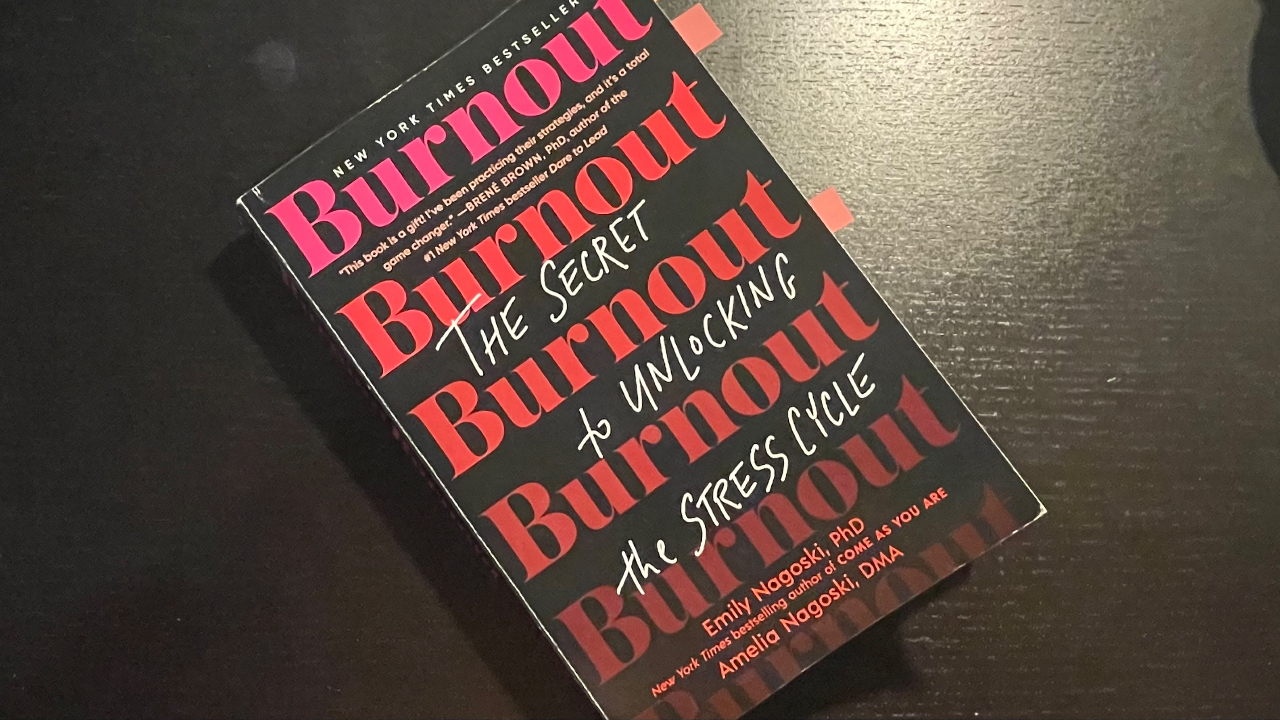Human Giver Syndrome
Sep 25, 2023
One of the things I have learned as I recover from burnout is how much I fell into a “People Pleaser” role from a very young age. While that is a very valid set of characteristics and way of describing the behavior where we put everyone else before ourselves, I believe the way Emily Nagoski, PhD and Amelia Nagoski, DMA describe “Human Giver Syndrome” in their book “Burnout: The Secret to Unlocking the Stress Cycle” is much closer to my lived experience.
They first introduce us to Human Giver Syndrome in the Introduction, noting that it’s a concept that philosopher Kate Manne described in her book, Down Girl: The Logic of Misogyny. The general idea is that, within our cultural code there are “human beings” and “human givers.” In this code, “’human beings’ have a moral obligation to be their whole humanity, while ‘human givers’ have a moral obligation to give their whole humanity.” [emphasis in original text]
They then go deeper into an explanation in Chapter 3:
“Think of Human Giver Syndrome as a virus whose only goal is to perpetuate its own existence. You were infected with it as soon as you were born, inhaling it with your very first breath. …Human Giver Syndrome changes human behavior in order to perpetuate itself – even if it kills the host (that’s us) in the process.
“Do you suffer from Human Giver Syndrome? Symptoms include:
- believing you have a moral obligation – that is, you owe it to your partner, your family, the world, or even to yourself – to be pretty, happy, calm, generous, and attentive to the needs of others; [emphasis in original text]
- believing that any failure to be pretty, happy, calm, generous, and attentive makes you a failure as a person;
- believing that your “failure” means you deserve punishment – even going so far as to beat yourself up; and
- believing these are not symptoms, but normal and true ideas.
- “That last one is the crux, of course. What makes this metaphorical “virus” so successful as an infectious agent is that its symptoms are self-masking. It blinds you to its presence and is self-perpetuating – that is, we are surrounded by people who are also “infected,” and they, too, treat themselves and us and everyone as if Human Giver Syndrome were just normal human behavior, which reinforces our own sense that it is not a disease at all, but a healthy, normal way to live.”
This was exactly my lived experience. I grew up knowing virtually nothing else. This was how the women in my family worked. They gave everything to everyone else first. If there was anything left, they probably gave that away, too. Sometimes they would have a hobby, but it was never something they would pursue outright, no matter how talented they were. The idea that you had to be pretty, happy, calm, generous, and attentive to the needs of others came above everything else.
The women in my family are also known for having a strong independent streak, me included. You might wonder how this worked with the Human Giver Syndrome. It created the dynamic of “I must provide everything I need for myself. I can’t be a burden on anyone AND I also must take care of all these people and things.” We worked so hard to provide for not only ourselves, but much of what everyone else needed as well. It was a recipe for burnout for me and others. It’s really hard to do everything while allowing others to take advantage of you!
I feel like this is also why it’s so hard to let go of it, even after being through something as difficult as burnout. We’re still surrounded by people (male and female) who honestly believe that this is how we as women are supposed to live our lives, no matter what. When you tell them that I have something more, that I have a right to EXIST and to BE they don’t understand, and they often don’t support us.
We survivors wind up having to find support in other places. We still want to be of service, to serve our larger source of meaning (referred to in the book as your “Something Larger”), but not at the expense of our life.
Are you working through work-life balance issues? Are you facing burnout?
Reach out for a free 1:1 coaching consultation.
Was this post shared with you?
Join our mailing list to receive the latest blog posts directly!
Your information will never be shared.
We hate SPAM. We will never sell your information, for any reason.

